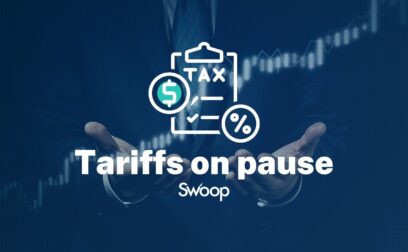TABLE OF CONTENTS
Looking for a Canadian small business grant? We’ve got the resources you need and can help you apply for more than 200 grants.
The National Research Council of Canada’s (NRC) Industrial Research Assistance Program (IRAP)
Up to $10,000,000
Funding required
Open-ended
Closing date
Regional Economic Growth through Innovation (REGI)
Up to $10,000,000
Funding required
Open-ended
Closing date
Several programs exist in Canada to support the costs of research & development (R&D) and encourage innovation by offering tax relief/credits. Many companies aren’t even aware they might have eligible spend for these schemes. Are you one of them?
SR&ED (Scientific Research & Experimental Development ) tax credits
15% or a refundable tax credit of 35% on the first $3 million
Funding required
Open-ended
Closing date
E-business tax credits
$25,000 per eligible employee
Funding required
Open-ended
Closing date
Multimedia tax credits
Up to 37.5%
Funding required
Open-ended
Closing date
Register your business with Swoop for access to tailored funding and savings opportunities
At Swoop, we can help you access and capitalize on government tax credits and grants through non-dilutive financing, giving you access to quick capital to fund your business growth.
Access Your SR&ED refund up to 12 months early so you can:
Register with Swoop to see how we can support you with grant advance funding, helping your business reduce time to funding.
As Canada’s largest provincial economy, Ontario offers a variety of small business grants and related programs for startups and established business, from downtown Toronto to the far north, including indigenous businesses. For example, there are grants to improve your digital presence, grants to help pay for training costs, the Northern Ontario Heritage Fund to support small businesses in northern Ontario, and the Indigenous Economic Development Fund that provides grants and financing for Indigenous businesses, communities and organizations.
The Native Commercial Credit Corporation is a Quebec organization with funding services specifically designed for Aboriginal entrepreneurs. Their Aboriginal Business Financing Program in particular offers a non-repayable grant of up to $99,999 to start, acquire or expand a business. This program is open to First Nations and Native Alliance of Quebec members.
Another interesting opportunity for Quebeckers is a set of Industrial Agreement Programs that can provide funding for trips to France and other European economic regions to acquire knowledge or intellectual property or to collaborate on research and development.
Quebec businesses involved in the development of a new product or process or to significantly improve an existing product or process may benefit from the province’s support for innovation projects. Eligible businesses can receive a non-repayable grant of as much a 75% of total project expenses to a maximum of $350,000 per project.
British Columbia has a dynamic economy with an impressively wide range of arts and culture grants covering everything from community groups and heritage centres to theatre, film, literature, visual arts and music.
You’ll also find dozens of BC small business grants available for purposes such as agriculture, export support, research and technology, trades, wage subsidies, and indigenous entrepreneurs.
The Canada-Alberta Job Grant is a great option that allows employers and government to share the cost of training new and existing employees to increase their knowledge and skills and meet the needs of Alberta’s changing economy.
Some of Manitoba’s most innovative small business grant programs are no longer accepting applications – such as a $5,000 grant to help offset work-from-home expenses.
However, for Manitoba businesses looking to expand their reach to international markets, the federal CanExport program can offer generous support. The program offers funding of up to $75,000 for business expansion marketing projects including trade shows, marketing material translation, and market research.
The Clarence Campeau Development Fund aims to stimulate the economic development activities of Métis people. The fund leverages relationships with funding partners, industry, and communities to meet the evolving needs of Métis businesses, offering a variety of repayable loans and non-repayable grants to entrepreneurs.
Product2Market: Value-Added is an innovative grant program with two streams: a Prototype and Product Development stream that supports the creation and launch of new products, and a Market Development Stream that helps Saskatchewan companies expand their domestic and international markets through promotional and marketing activities. Successful applicants will receive 50% of eligible expenses to a limit of $100,000 per company per year.
Nova Scotia’s Innovation Rebate Program is unique. Although the assistance it provides is often in the form of free or inexpensive support and services rather than cash grants, it is quite creative in its style and scope.
In addition to supports and rebates for European and Asian market development, export growth, and technology innovation, the program also provides a digital asset marketing program and scale-up hubs that can situate promising startups from Nova Scotia in Cambridge, New England and Atlanta, Georgia.
The province of New Brunswick offers a number of resources for businesses, ranging from tax credits and market research to venture capital – many of which are delivered through an economic growth agency known as OpportunitiesNB. For those seeking non-repayable business grants in New Brunswick, one of the better options is to explore the hundreds of federal government options, which may be searched using the Government of Canada Business Benefits Finder.
If you have a business idea but need some initial funding to get it off the ground, there might be a government grant for you. A great way of searching for options is the Government of Canada Business Benefits Finder. This tool lets you input details about your business and your needs and scans nearly 1,400 different programs across Canada to recommend potential options for you.
The Government of Canada reports that women own fewer than 16% of businesses and are underrepresented in the economy. There are now a number of initiatives underway to address women’s economic empowerment, including black, minority, and Indigienous women, that together have the potential to add $150 billion in incremental GDP by 2026.
One recent initiative was the Women Entrepreneurship Strategy, which allocated $30 million to 300 projects, including $2.5 million for Indigenous women entrepreneurs. Here’s a directory of some current business grants for women in Canada.
It’s fair to say that the pros outweigh the cons when it comes to small business grants.
On the positive side, a business grant is essentially free money. Unlike a loan, it never needs to be repaid. That makes it a business funding option that’s pretty hard to beat. On top of that, once you qualify for a grant, there’s some evidence that you’ll have an easier time qualifying for more grants in the future, as other organizations will see you as a reliable candidate.
On the negative side, winning a small business grant can involve a lot of work and uncertainty. You first must find an appropriate grant to apply for, then create a detailed and compelling proposal, and finally be selected from what could be a large pool of hopeful applicants.
So, while receiving a business grant is not always easy, it is certainly desirable.
When writing a business grant proposal, it’s worth keeping the following points in mind:
Writing a successful grant application is no easy task. It’s well worth spending time to get it right. You may wish to engage the services of a professional grant writer, whether that’s a local professional or a relatively low-cost online freelancer.
One of the challenges of applying is the potentially dizzying range of options out there – each with their own criteria and processes. Join Swoop today and we can help you narrow down the best possibilities in no time.
A business grant is a sum of money given to a business by a government, charity or other organization. Usually, business grants are designed to promote certain social or economic goals, such as strengthening or developing certain industry sectors or creating opportunities for underrepresented groups in society. Unlike business loans, grants are non-repayable.
Interested? Join Swoop to start seeing the best business grant options in minutes.
Yes, it is possible to get a grant to start a business, but it may not be easy. In general, grant providers prefer to support businesses that already have at least a modest track record. From a risk-management point of view, grantees might be reluctant to hand out free money to unproven entrepreneurs. They may have more confidence providing it to those who have demonstrated their determination by first risking their own resources.
No, you almost never have to pay grant funds back. Rare exceptions may occur if an entrepreneur has received or used the grant funds improperly.
Yes, business grants are usually considered taxable income. It is important to take this into consideration when planning your business finances.
Match funding for grants means that in order to receive a particular business grant, you will need to put up some of your own funds. Grant organisations might request match funding to give them the reassurance that you are serious about the project being invested in and that you are able to raise adequate funds to support it.
Grant advance funding refers to a financial arrangement where companies that participate in government grant programs can access a portion of their future grant capital in advance. In other words, it’s a loan to get cracking on your grant-funded project.
It allows businesses to receive a portion of the grant funds before completing the milestones or project requirements outlined in the grant agreement. It helps companies maintain cash flow, meet financial obligations, and progress with their projects without waiting for the complete disbursement of the grant funds.
Yes – because you won’t be expected to repay grant money (as you would with a loan), bad credit shouldn’t be a problem.
However, it’s important to thoroughly check the general terms and criteria – such as business size, grant purpose, location and industry type – before you apply to make sure you qualify.
To make your application worthy of receiving funding, it’s important to do all the necessary preparation. As part of this, you’ll need a solid and realistic business plan with sales projections, cash flow and loss forecasts. Your business plan should be tailored for the grant you’re applying for and, if you are already trading, you’ll need to provide bank statements as evidence of your finances.
Always prepare your application as early as you can to ensure you don’t miss the deadline. It’s worth getting a second opinion from a mentor, senior colleague or expert and be sure to proofread and spell check your application before submitting it.
Cash grants are usually taxable because they are classed as a form of income. This means that once you have subtracted the relevant allowances and expenses, the sum left over will be liable to tax.
The government will generally only allocate funding to businesses that meet specific requirements, such as; location, business size, and trading duration.
Given the higher likelihood of male-owned businesses receiving funding, organisations are increasingly focusing on funding women in business to provide them with more opportunities for success.
Register with Swoop to explore your options.
Michael David is a financial writer and former investment advisor. Writing for Capital Group, Dimensional Fund Advisors, Franklin Templeton Investments, HSBC, Invesco, PIMCO, Vanguard, global insurance companies, major banks and others, he has educated professionals, business owners and consumers about strategies for investing, insurance, banking and corporate finance for more than 20 years.
Swoop promise
At Swoop we want to make it easy for SMEs to understand the sometimes overwhelming world of business finance and insurance. Our goal is simple – to distill complex topics, unravel jargon, offer transparent and impartial information, and empower businesses to make smart financial decisions with confidence.
Find out more about Swoop’s editorial principles by reading our editorial policy.
The Swoop platform has over 200 grant options available. Click here to check your eligibility
Join the 95,000+ businesses just like yours getting the Swoop newsletter.
Free. No spam. Opt out whenever you like.
Kingfisher Way, Silverlink Business Park, Newcastle upon Tyne, NE28 9NX, UK
View in Google Maps35 Bull Street, Lewis Building, Birmingham B4 6AF, UK
View in Google MapsAberystwyth Innovation and Enterprise Campus
Gogerddan Campus
Aberystwyth University
Ceredigion
SY23 3EE
Dogpatch Labs, The CHQ Building, Custom House Quay, Dublin, Ireland
View in Google MapsSuite 801, Level 8, 84 Pitt Street, Sydney, NSW 2000, Australia
View in Google Maps43 W 23rd St, New York, NY 10010, United States
View in Google Maps21 Dreyer Street, Cape Town, South Africa, 7708
View in Google MapsClever finance tips and the latest news
Delivered to your inbox monthly
Join the 95,000+ businesses just like yours getting the Swoop newsletter. Free. No spam. Opt out whenever you like.




